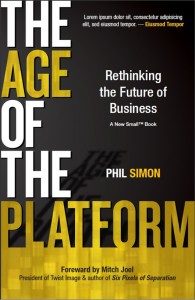 One of the major problems of selling is a person’s failure to qualify. That is, if the salesperson jumps right into a presentation without knowing anything about the needs of the prospect, then it’s highly likely the prospect will walk away without buying. For good reason. The salesperson failed to find out any meaningful information about the needs or desires of the prospect.
One of the major problems of selling is a person’s failure to qualify. That is, if the salesperson jumps right into a presentation without knowing anything about the needs of the prospect, then it’s highly likely the prospect will walk away without buying. For good reason. The salesperson failed to find out any meaningful information about the needs or desires of the prospect.
In other cases, the prospect may buy, but then problems erupt because the salesperson didn’t get enough information to make the purchase stick. As the old sales adage goes, “Anybody can sell somebody once!”
When it comes to qualifying a prospect, or failing to do so – maybe anybody can sell something once, but can you keep it sold? I’ve known too many salespeople who could sell something, but their return rate (the number of customers who would demand a refund) was sky-high. That’s not quality salesmanship. It’s poor service.
Quality questions solve some of these issues. By learning to ask better questions salespeople can accomplish three critical things:
a. You demonstrate how much you really care about solving the prospect’s problem.
b. You’re better able to tailor the best solution for their problem.
c. You build rapport and develop a relationship, not just a transaction.
Imagine going to a doctor because you suspect you’ve got a sinus infection. You’re ushered into the examination room. As you wait for a nurse, or the doctor, you’re anxious to get on with it. You want to tell somebody what’s wrong with you so you can get on the road to feeling better. The door opens, in walks a nurse with a syringe. She asks you to roll up your sleeve so she can give you a shot. Would you let her?
Of course not! You’ll look at her like she’d lost her mind, probably thinking to yourself, “She’s got the wrong patient!” Quickly, you’d let her know that you haven’t had the opportunity to tell anybody what’s wrong with you.
Every day sales calls take place just like that. A salesperson walks into a room armed with a syringe – their solution – before they even know what the problems are.
A young man asks a young lady out on a date. At dinner he holds forth telling her all about himself. He talks about his background, what he likes, what he doesn’t like, his favorite sports, music, books. On and on. He rambles incessantly about himself all evening long, never stopping once to ask the young lady about her life. All the while she’s thinking, “Boy, he sure is full of himself.”
Does she go out with him again? Not on your life. She’s happy to have that date behind her. She quickly tells her friends how he didn’t care to find out anything about her. Soon, word spreads throughout her circle that he’s not a guy any self-respecting girl would want to date.
Word will spread about you, too. Enter a prospect’s office and dive right into your sales pitch. No need to find out more about them, or their pain. Your solution is a one-size-fits-all so you’re convinced the prospect needs what you’ve got. Just like the young man is convinced that any young lady would be honored to have him ask her out on a date. Not so much!
Quality questions don’t just improve sales and a buyer’s experience – they can also improve our careers and our businesses. Pre-think good questions that can help you serve others. You’ll craft better questions beforehand then you’ll ever craft on the fly. Besides, not everybody is intuitively given to wise inquisition.
Some years ago I was running a retail operation that sold consumer electronics and high-end major home appliances. Delivery was part of what we did. The warehouse manager was reporting considerable delivery problems. It seems we’d arrive at a client’s home, prepared to make the delivery, only to find out that due to the difficulty of this particular delivery we needed additional men.
I visited with the sales team and asked them a question. “What are you guys asking the customers to find out about the difficulty of making a delivery to their home?”
“We’re asking them if there’s any abnormal about their delivery,” they replied. “Well, a customer might have 185 steps up a 45 degree incline in the front of their house. To them, that’s normal because it’s their house. Besides, who wants to admit that they’re abnormal?” I said.
“Can anybody think of some better question to ask?” I said.
They shrugged and thought for a moment. Nobody came up with a suggestion. And this was a very talented and veteran sales team.
“Do you think it might be more helpful if you asked the customer to describe how we’ll have to make the delivery from our truck to where the product is going to go inside their house?” I asked.
Sure. They all concurred that’d be a pretty good question. But I followed it up with another suggestion. “And as they describe it, listen carefully and ask them to fill in details so our delivery teams can be fully prepared when they arrive at the customer’s home. It’s an inefficiency for us, but worse yet – it’s bad service when we have to make the customer wait as we dispatch a second truck with two more guys who are needed to make the delivery happen.”
Don’t be so quick to think you know what the answer is going to be. Quality questions require an answer. Take the time to carefully hear the answer. Restate it if you must. Make sure you and the prospect clearly understand things alike. Many sales problems can be avoided simply by making sure things are clearly understood. Details do matter. Listen for the answers so you can refine and drill down as finely as you need to in order to solve the prospect’s problems.
If I’m attempting to sell you a piece of software and I ask you what type of computer hardware and operating system you have – I’d better pay attention to the details of your answer if my software has specific requirements. Perhaps my solution requires more disk space than you have. It may require more memory. It may require a more recent operating system than the one installed on your computer. I can’t assume that because Windows 7 is the current OS for PC’s and Snow Leopard is the current OS for Mac (soon to replaced by Lion) that my prospect has either of those. What if they’ve got Windows XP Pro and my solution won’t run very well on that? Problems can be easily avoided by simply finding out. An enormous part of finding out is listening and paying attention to the details of the answers.
Show you care enough to learn more about the person and the problem they’re experiencing. That doesn’t mean the interaction is like an NCIS interrogation room. It simply means like a good friend who is trying to help, or like a doctor who is trying to diagnose, we’re concerned enough to learn more so we can help. Service begins with caring enough to find out how the prospect feels, what they think and what they want or need. Every person respects being asked about their life, their business and their problems. We’re flattered when people take such an interest in us. While I don’t propose you do it as a flattery tactic, I encourage you to show genuine care and concern for your prospects so you can serve them better – so you can help them!
Do not presuppose that you have the answer to their problem. First, find out what their problems are. Never enter a prospect’s office with a syringe in your hand.

 Phil Simon describes his new book – due out in September, 2011 – The Age Of The Platform, as more of a management book than a technology book. The book launches forth in a study of The Gang of Four: Amazon, Google, Apple and Facebook. But solopreneurs and small business owners should not think this is a book about BIG business. It’s a study of these big enterprises and small businesses who have found ways to create dynamic, high performing platforms.
Phil Simon describes his new book – due out in September, 2011 – The Age Of The Platform, as more of a management book than a technology book. The book launches forth in a study of The Gang of Four: Amazon, Google, Apple and Facebook. But solopreneurs and small business owners should not think this is a book about BIG business. It’s a study of these big enterprises and small businesses who have found ways to create dynamic, high performing platforms. I caught up with Phil Simon on Friday afternoon, July 22nd. I hope you’ll visit his KickStarter campaign to raise money for publishing The Age Of The Platform. Go to the KickStarter campaign right now and contribute to the cause. The campaign ends August 21st.
I caught up with Phil Simon on Friday afternoon, July 22nd. I hope you’ll visit his KickStarter campaign to raise money for publishing The Age Of The Platform. Go to the KickStarter campaign right now and contribute to the cause. The campaign ends August 21st.
 One of the major problems of selling is a person’s failure to qualify. That is, if the salesperson jumps right into a presentation without knowing anything about the needs of the prospect, then it’s highly likely the prospect will walk away without buying. For good reason. The salesperson failed to find out any meaningful information about the needs or desires of the prospect.
One of the major problems of selling is a person’s failure to qualify. That is, if the salesperson jumps right into a presentation without knowing anything about the needs of the prospect, then it’s highly likely the prospect will walk away without buying. For good reason. The salesperson failed to find out any meaningful information about the needs or desires of the prospect. Social media is a great resource that offers high value. It does not, however, offer the highest value.
Social media is a great resource that offers high value. It does not, however, offer the highest value. 